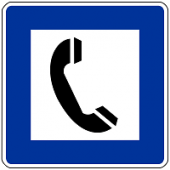Our website uses cookies so we can analyse our site usage and give you the best experience. Click "Accept" if you’re happy with this, or click "More" for information about cookies on our site, how to opt out, and how to disable cookies altogether.
We respect your Do Not Track preference.

“A lot of you cared, just not enough” - Jay Asher, Thirteen Reasons Why. Hannah, the subject of Jay Asher’s young-adult novel, commits suicide. Before she killed herself, she left an anonymous note for her teacher saying she was considering suicide. As the note was anonymous, the faculty did not take it seriously.
The same could be said for cries for help that are posted by people on social media. As they are online, people can sometimes view this as attention-seeking and not realise that someone is really struggling with mental health issues. It’s a conundrum that was explored at the 'e-mental health' forum at NetHui 2015 earlier this month.
On 25 February 2015, Facebook announced updated tools that provide more resources, advice and support to American Facebook users who may be struggling with suicidal thoughts and their concerned friends and family members. This initiative is in partnership with mental health organisations including Forefront, Now Matters Now, the National Suicide Prevention Lifeline and Save.org who co-designed the tools.

The tools analyse public wall-posts for troubling messages. If a worrisome post is found, the tool will contact both the user and their friends and family to provide them with advice and encourage them to reach out to their loved one.
In New Zealand, the Health Information Privacy Code applies to health information. The code describes the principles underlying the collection, use and retention of both physical and mental health records. There is a strong argument that the code applies to e-mental health services such as the Ministry of Health’s Telehealth Service and SPARX. Telehealth services often provide counselling and, as anyone who’s been to a therapist will know, the stuff you tell a counsellor is usually about as private as it gets.
The obligations of social media platforms like Facebook are less clear cut. Developers of such services aren’t health practitioners in the typical sense, but they are still collecting a lot of highly sensitive personal information about their users. But social online communities can be instrumental in helping people with mental health issues find the help they need. For example, a Reddit Minecraft forum helped talk a teenager out of suicide. On the other side, another Reddit ‘let’s talk’ forum apparently led to a Reddit user being hospitalised against his wishes after expressing suicidal thoughts in a post.
Getting the balance right between control over our identity and getting the help we need in time is tricky. As part of our review of the Health Information Privacy Code, we plan to talk to e-mental health providers and social media providers to make sure our updated code makes getting this balance right and easy to achieve.
The NetHui e-mental health forum helped our office make some contacts in this space but if you, or someone else you know, has some insights to share, please get in touch with us at enquiries@privacy.org.nz or call us on 0800 803 909.
Back